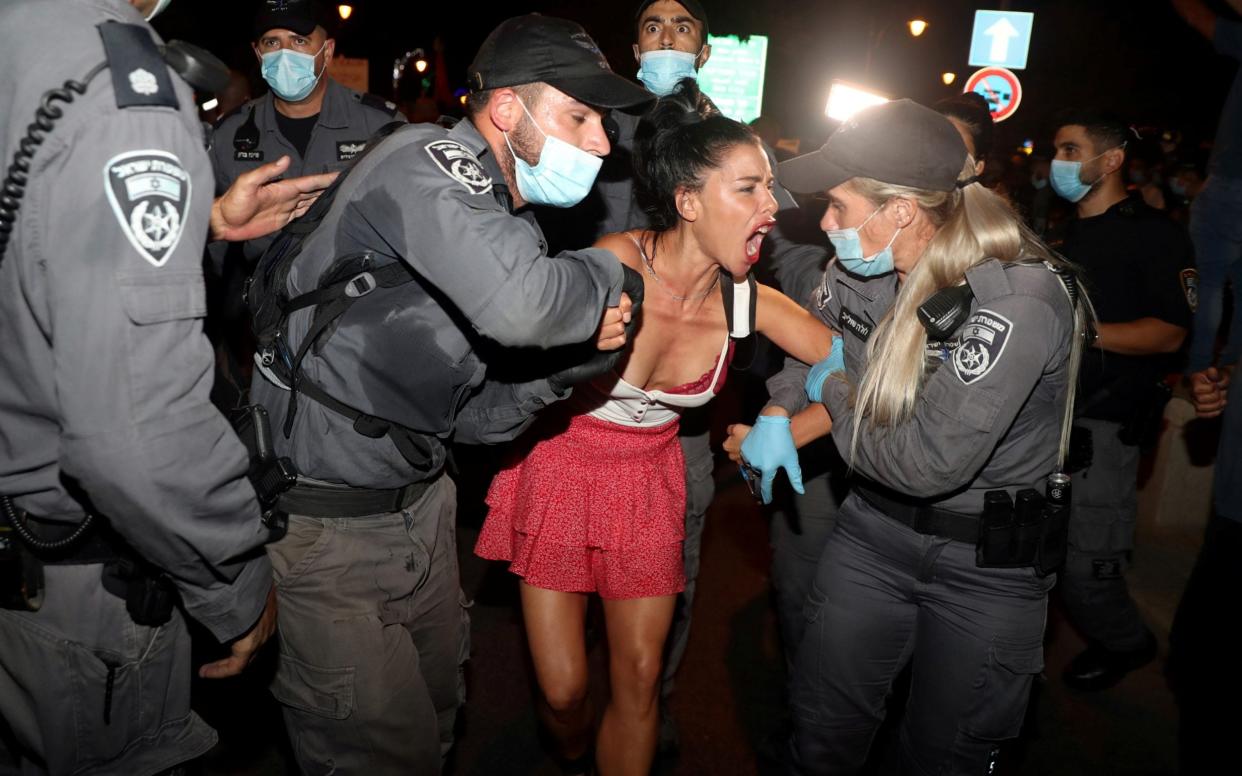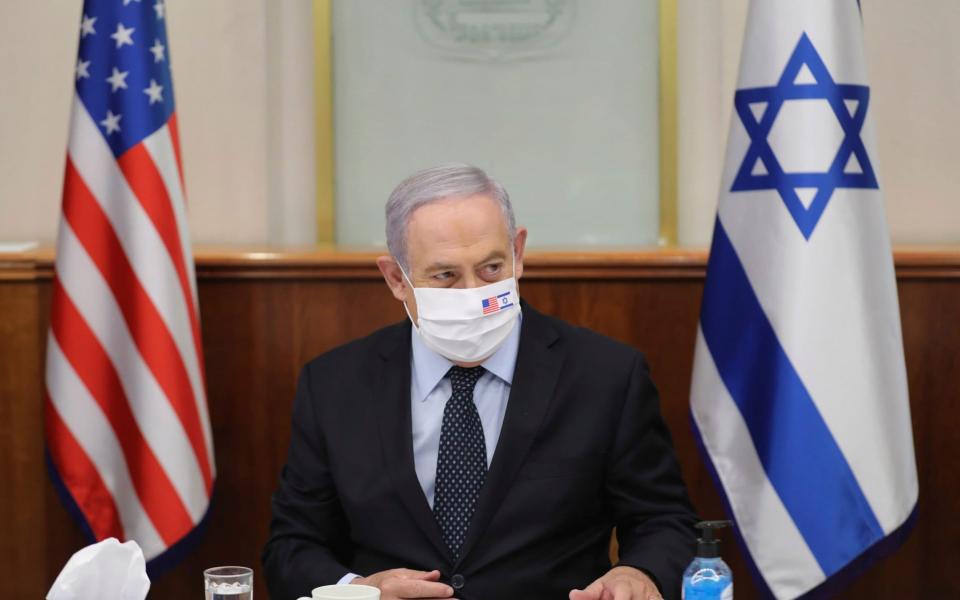Coronavirus infections reach 60,000 in Israel as protests continue

Israel’s coronavirus cases topped 60,000 infections over the weekend as thousands of people took to the streets across the country to protest the government’s handling of the pandemic and demand the resignation of the Prime Minister, Benjamin Netanyahu.
Police confirmed on Sunday that more than a dozen Israelis had been arrested in Saturday night’s protests, which for the first time in the weeks-long movement, also saw people demonstrating outside Mr Netanyahu’s private home.
Israel’s economy has been battered by the pandemic. Unemployment figures have risen to beyond 20 per cent, up from 3.9 per cent before the lockdown.
Israel was one of the first countries to impose total lockdown when the virus hit, bringing its infections down to single digits by mid-May and gaining the country praise for containing the virus. But critics say the re-opening of the country from its “iron-fist” approach of the first wave was hasty and erratic.
Last week infections surpassed an average of 2,000 per day in the country of nine million, making it one of the worst second waves in the world. Death rates have so far stayed relatively low, with 455 reported fatalities.
Protesters have been taking to the streets for weeks to demand the resignation of Mr Netanyahu for fumbling the country’s reopening and poorly implementing financial aid packages.
The economy, paralysed by the pandemic, has left one in five Israelis unemployed. The ad-hoc closures of various sectors, in an attempt to contain the virus without going back into full lockdown, are stoking public anger.
Some lockdown measures were reintroduced last week as the infections continued to climb, including stringent weekend shutdowns, the closure of gyms and the banning of indoor dining.

The demonstrators also slammed a law passed this week that gives the government special powers to fight the spread of the virus until the end of 2021.
Police fired water cannons at protesters in Jerusalem on Saturday amid growing concerns from critics that the police are being heavy-handed in their response.
At a press conference last week that coincided with protests, Netanyahu addressed the swelling protests, warning protesters: “Do not drag the country into anarchy, violence, vandalism.”
On top of the anti-Netanyahu rallies, the Prime Minister is facing the resumption of his corruption trial, in which is he is charged with fraud, breach of trust and accepting bribes in a series of scandals involving billionaire associates and media moguls. He denies any wrongdoing.

